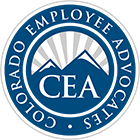In employment law, the term “whistleblower” refers to an individual who reports wrongdoing in the workplace, whether it is misconduct, illegal activity or unethical behavior. These people can serve a crucial role in the cause of justice, but it isn’t an easy thing to do. A person who is thinking about reporting wrongdoing may be concerned about whether speaking out will hurt their position at work — or even cost them their jobs.
They should know that there are laws that can protect them.
Notifying authorities
Whistleblowers usually notify authorities of the issue, like a government agency or other entity that can correct the problem. These issues may include health and safety violations, environmental hazards, financial fraud or embezzlement, or other regulatory concerns.
Unfortunately, the whistleblower may face retaliation from their employer which is intended to stop them from sharing further information or to prevent other employees from coming forward.
Retaliation for reporting
If the whistleblower is fired, laid off or given a poor performance evaluation that is unwarranted, it may be evidence of retaliation. Similarly, the employee may face discipline or other punishment for reporting as retaliation. They may be moved to an unfavorable position or demoted for being a whistleblower.
The employer may exclude the whistleblower from meetings, access to other co-workers, or may create a hostile work environment. They may also try to prevent the whistleblower from finding a new job or spread false information about the employee to colleagues in their industry.
Employees should not have to face retaliation, harassment or intimidation in the workplace for reporting illegal or unethical behavior. In addition to employment harm, it can also leave the employee with emotional damage.
If an employee needs help to address retaliation, there is assistance available.

